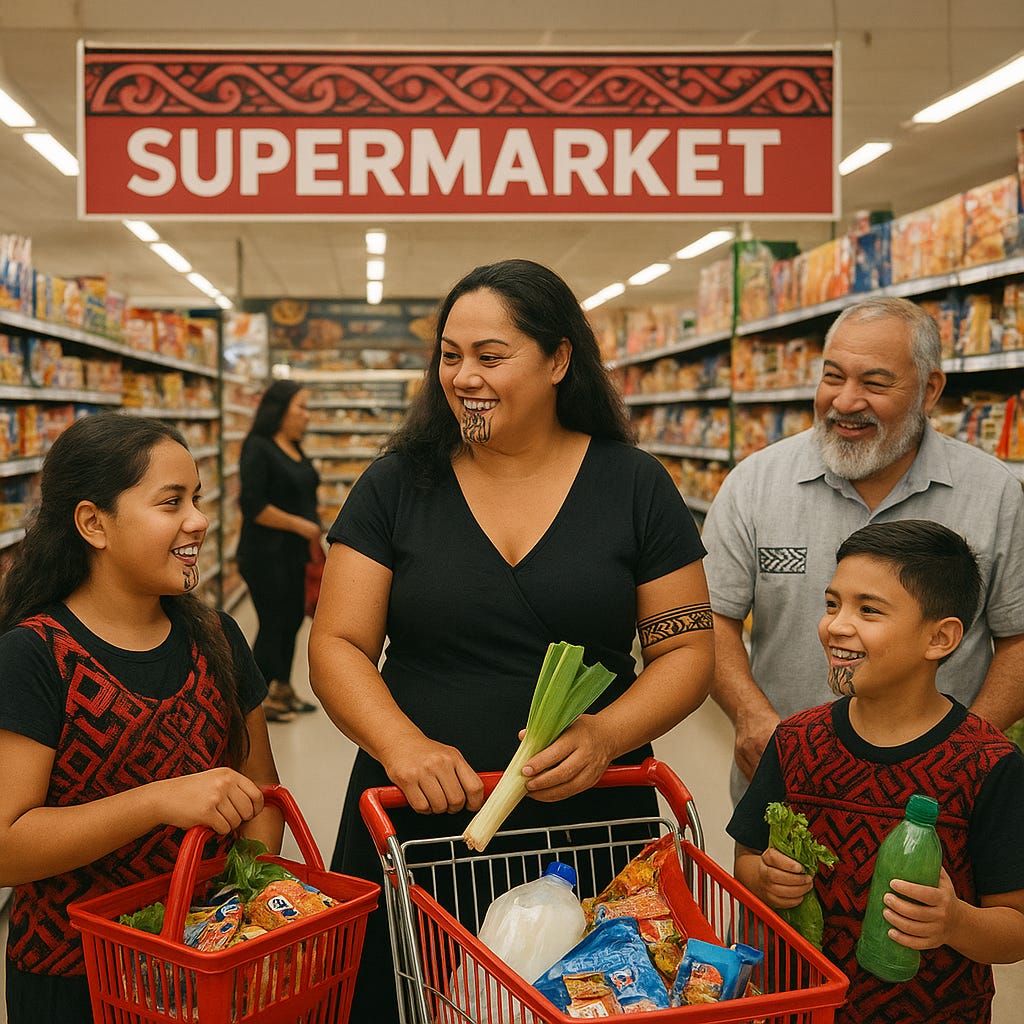Labour and Te Pāti Māori’s supermarket plan
Will history repeat the Kaikohe KFC collapse?
This week, some of my subscribers (Chris Bird and Just Boris) left interesting comments on my Substack following my article about Labour and Te Pāti Māori’s idea of launching a new supermarket chain. The concept is pitched as an “iwi-led, kaupapa Māori, Tiriti-centric approach to the supermarket duopoly.” Nope, that’s not satire, bro. That’s the actual proposal. You can read that article here:
It got me thinking about Kaikohe KFC – a case study that tells us everything we need to know about what happens when whānau ties and commercial reality collide.
The rise and fall of Kaikohe KFC
Kaikohe KFC opened in 2006 and closed in December 2015 after nine years in business. Mainstream media outlets like Stuff and the NZ Herald reported on the closure at the time, painting a sympathetic picture of the thirteen staff members who were suddenly redundant just before Christmas. The official explanation was that the store had been operating at a loss for years, and Restaurant Brands (who own KFC) finally pulled the plug.
The real story wasn’t quite so tidy…
Not long after the closure, I met one of those former employees at the Mangonui Hotel in Northland. He openly admitted that one of the biggest problems was theft – and not just a little here and there. Staff, including managers, would give away food to family and friends. People would walk in, pay for a $5 snack box, and leave with a bucket of chicken worth seven times that. At closing time, trays of cooked chicken would “disappear” with the workers.
In other words, Kaikohe KFC wasn’t failing because no one wanted fried chicken. It was the busiest place in town. It failed because tens of thousands of dollars worth of food was being stolen.
What this means for “iwi-led” supermarkets
Now imagine applying that same model to a supermarket chain. That is essentially what Labour and Te Pāti Māori are proposing - an iwi-led food retailer.
When “whānau” ties override accountability, corruption follows. The Kaikohe KFC story shows what happens when personal relationships outweigh commercial discipline. Unlike KFC, where the loss was absorbed by a private corporation, a supermarket chain like ‘Kiwi Kai’ would most likely be underwritten by taxpayers.
Police don’t publish official statistics ranking shoplifting offenders by ethnicity, but anyone who has worked in retail, follows local Facebook groups, or reads the crime pages in the news will know the trend - the main offenders in this country are Māori. Theft and shrinkage are already a massive cost to the supermarket sector. Add in a racially-exclusive, iwi-controlled model, and you’re creating a recipe for disaster.
A guaranteed failure
A Māori-run supermarket chain wouldn’t challenge the duopoly. It would collapse under the weight of theft, “special deals” for whānau, and political favouritism. Just like Kaikohe KFC, it would be busy, but it wouldn’t make money.
An “iwi-led, kaupapa Māori, Tiriti-centric approach” to food retail sounds good to far left politicians and to Māori extremists, but in practice, it would end the same way as Kaikohe’s fried chicken experiment - with a shuttered store, wasted investment, and taxpayers footing the bill.
🔒 I still find it funny that KFC sent me a takedown notice
I have to admit, it genuinely amused me when KFC tried to flex their legal muscles because I used their branding in one of my article titles. They want to control every tiny bit of their image, policing anything that might “harm the brand.” Meanwhile, KFC is nothing more than greasy, cholesterol-packed fast food that’s completely overhyped. There’s nothing classy or wholesome about it, no matter how they market it…





